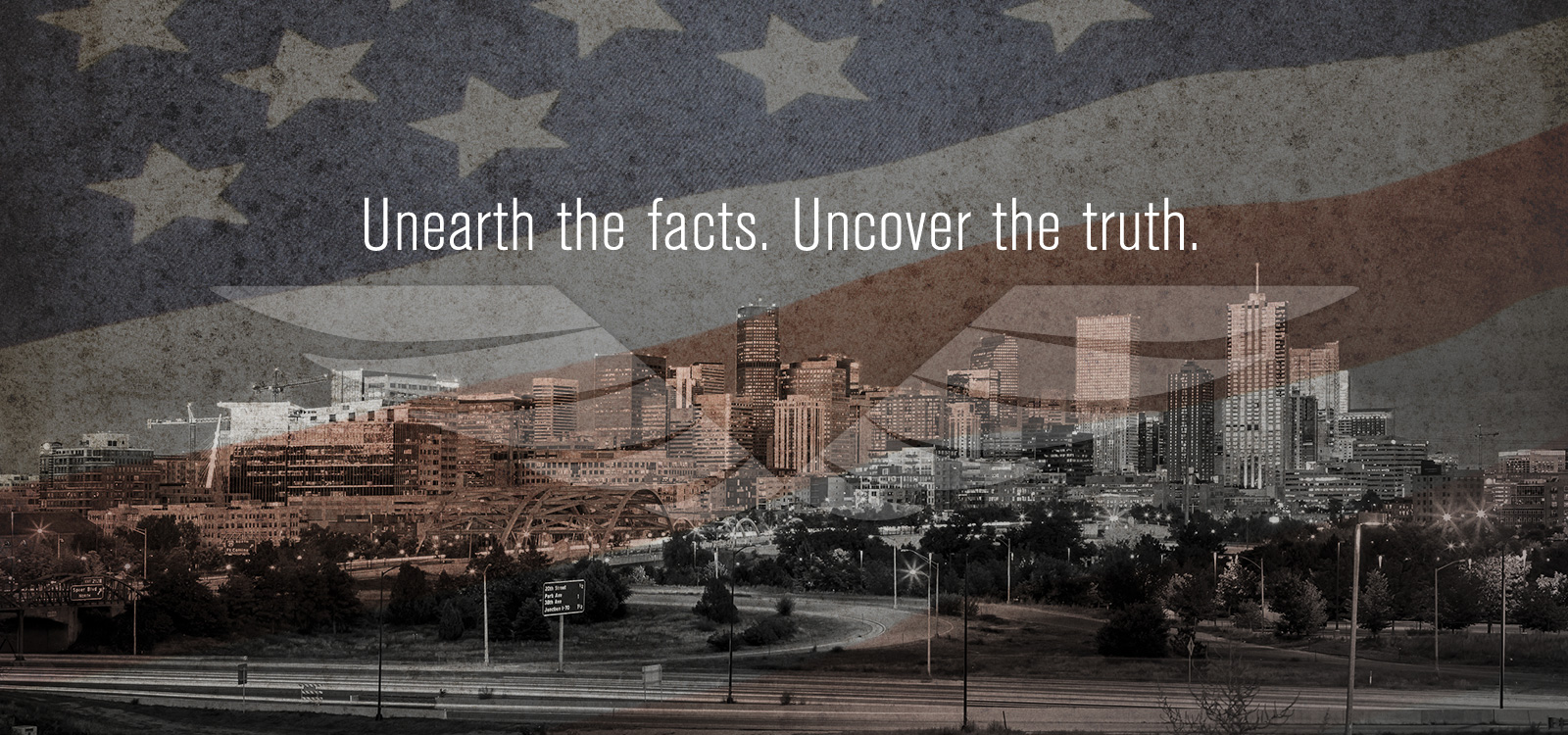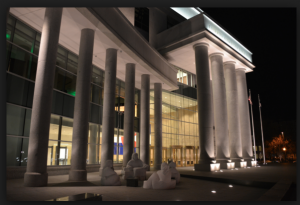
High court finds Colorado Springs cops went too far with spy camera on utility pole
Sept 13-14, 2021 | By Michael Karlik | Originally published in The Gazette.

(Photo courtesy of the Department of Law) The Ralph Carr Judicial Building, which houses the Colorado Independent Ethics Commission.
Colorado Springs police violated constitutional protections against warrantless searches by using a pole-mounted camera to monitor a suspected drug dealer’s home continuously for three months, the Colorado Supreme Court ruled Monday.
The decision clarified the privacy rights of individuals in an age of advanced surveillance technology. Although the government argued that Rafael Phillip Tafoya’s property was visible to the public through gaps in his six-foot-tall fence and from a neighboring apartment building, the justices found the overall nature of the surveillance intruded upon Tafoya’s reasonable expectation of privacy.
“Here, most significantly, the surveillance occurred continuously over a long period of time; the pole camera not only could see into the backyard, but it also recorded the activities of Tafoya’s backyard all day, every day for over three months,” Chief Justice Brian D. Boatright wrote in the September 13 opinion.
Boatwright wrote the surveillance brought “a degree of intrusion that a reasonable person would not have anticipated.”
Colorado Supreme Court declines to hear CU transparency appeal, takes up school attendance impasse
The decision means Tafoya and Gabriel Sanchez, who was also convicted as a result of the police operation, are entitled to new trials, with the surveillance footage thrown out.
“It’s a good day if you value your right to privacy in Colorado,” said Robert Borquez, the attorney representing Tafoya. “It doesn’t mean that police are having their hands tied about what they can do. But before they can peek over people’s fences, they have to get a search warrant.”
The case involved a camera Colorado Springs police mounted, without a warrant, onto a telephone pole outside what they called a “stash house” where drug deals allegedly took place. Between May and August 2015, the camera recorded Tafoya’s property continuously, catching what police called criminal activity on two occasions.
Sanchez drove onto Tafoya’s property and the two men moved bags between his car and the garage. Later another vehicle arrived, removing the spare tire out of view of the camera and then reattaching it, court papers said. Investigators who pulled over the vehicles identified in the surveillance say they found narcotics or cash. Police later obtained a search warrant for Tafoya’s garage and found additional drugs, as well as cash in Sanchez’s vehicle.
Both men received prison sentences following their convictions for possession with intent to manufacture or distribute a controlled substance.
In November 2019, a three-judge panel of the Court of Appeals determined police violated the Fourth Amendment by conducting a warrantless search of Tafoya’s property. Although the panel acknowledged it would not amount to a search for an officer to stand on a utility pole and peer into Tafoya’s yard, judges found the camera drastically extended the length and continuity of the surveillance, to the point where it infringed upon Tafoya’s reasonable expectation of privacy.
Other courts have been more willing to side with police in cases involving long-term surveillance. In July, the federal appeals court based in Chicago upheld the use of a pole camera to monitor a man’s home in Illinois for 18 months. Last year, a federal appeals court panel in Boston took no issue with surveillance that lasted for eight months. That decision is now on appeal to the full appellate court.
During arguments in April of this year, justices of Colorado’s Supreme Court appeared wary of the camera placed on a utility pole in Colorado Springs. Justice Melissa Hart described how a utility pole outside of her home could provide a view into her daughter’s bedroom.
“Most people you ask would actually be quite surprised that the police could be videotaping your backyard all the time. That anything there, no matter what … would be subject to police surveillance,” she said.
The American Civil Liberties Union and the Electronic Frontier Foundation, a digital privacy group, supported Tafoya and Sanchez in the appeals. Siding with the government, they argued, would give police license to track political activists or protesters to their homes without a court’s authorization.
Nathan Freed Wessler, deputy project director of the ACLU’s Speech, Privacy, and Technology Project, praised the ruling for making Colorado “a leader in ensuring that the Constitution continues to protect our privacy against government surveillance in the digital age.”
The U.S. Supreme Court established in 1967 that an area of a person’s home that they knowingly expose to the public is not necessarily protected from police searches. Another decision clarified that police may use technological surveillance to enhance “the sensory faculties bestowed upon them at birth.”
But the state Court of Appeals, and now the Colorado Supreme Court, distinguished between cases involving brief surveillance and continuous monitoring at Tafoya’s home. Both courts drew upon United States v. Jones, a 2012 decision in which Justices Samuel A. Alito, Jr. and Sonia Sotomayor found police use of a global positioning system tracker on a suspect’s vehicle had troublesome privacy implications.
Colorado’s high court found the camera, in the absence of a warrant, invaded Tafoya’s privacy.
“As a result, police would know who Tafoya’s friends and associates were, how often they came and went, and how long they stayed at his home. And these observations were not just on days that police suspected that an illegal transaction might happen,” he wrote.
The Fourth Judicial District Attorney’s Office, which prosecuted the cases, hasn’t said whether it will pursue a retrial, with a spokesperson saying the office is reviewing the Court’s decisions.
Associate professor Ian P. Farrell of the University of Denver’s law school said the U.S. Supreme Court may ultimately take up the constitutionality of pole camera surveillance directly, given the split decisions on the subject from lower courts.
“At the moment federal law is being applied differently in some parts of the country than others,” he said.
The cases are People v. Tafoya and People v. Sanchez.

